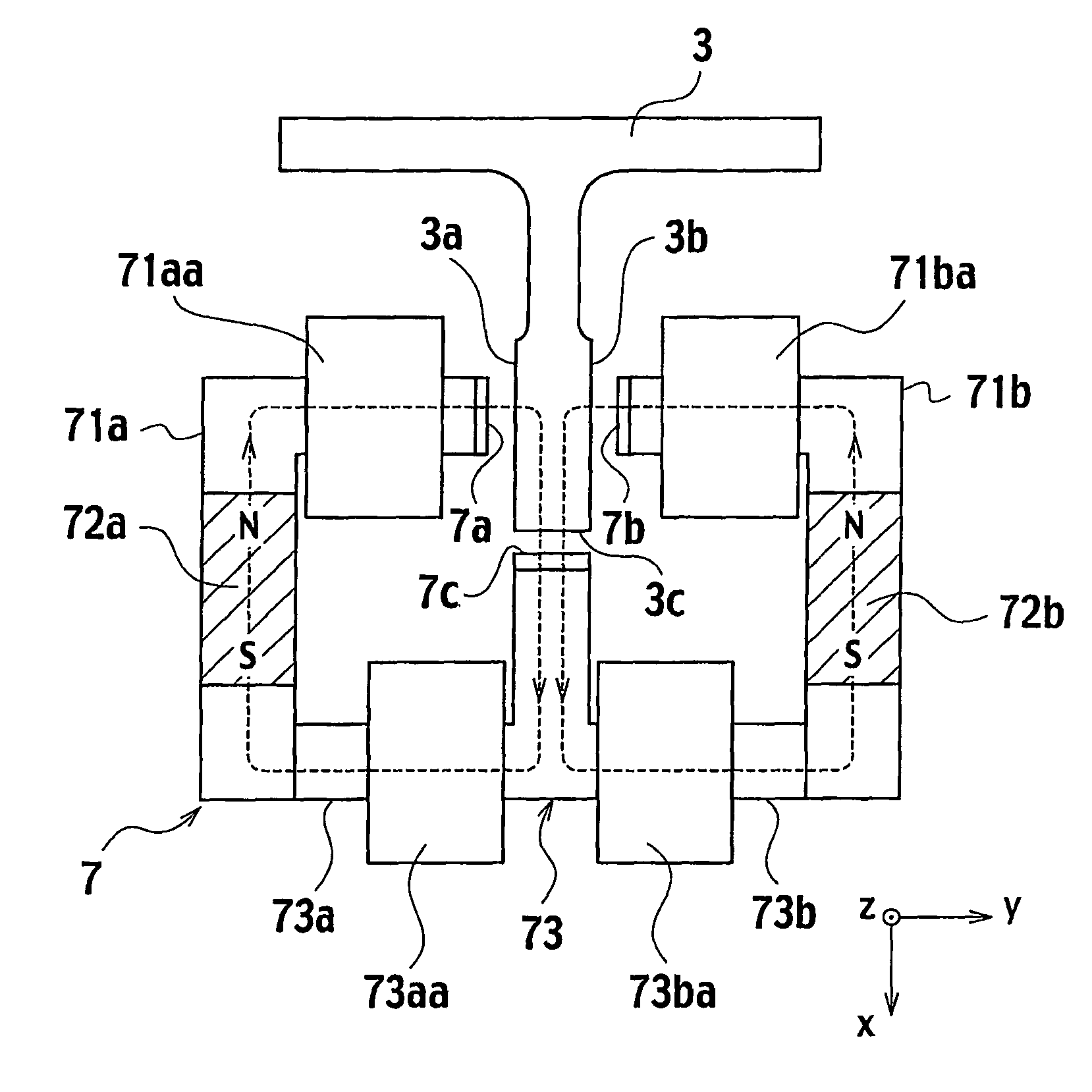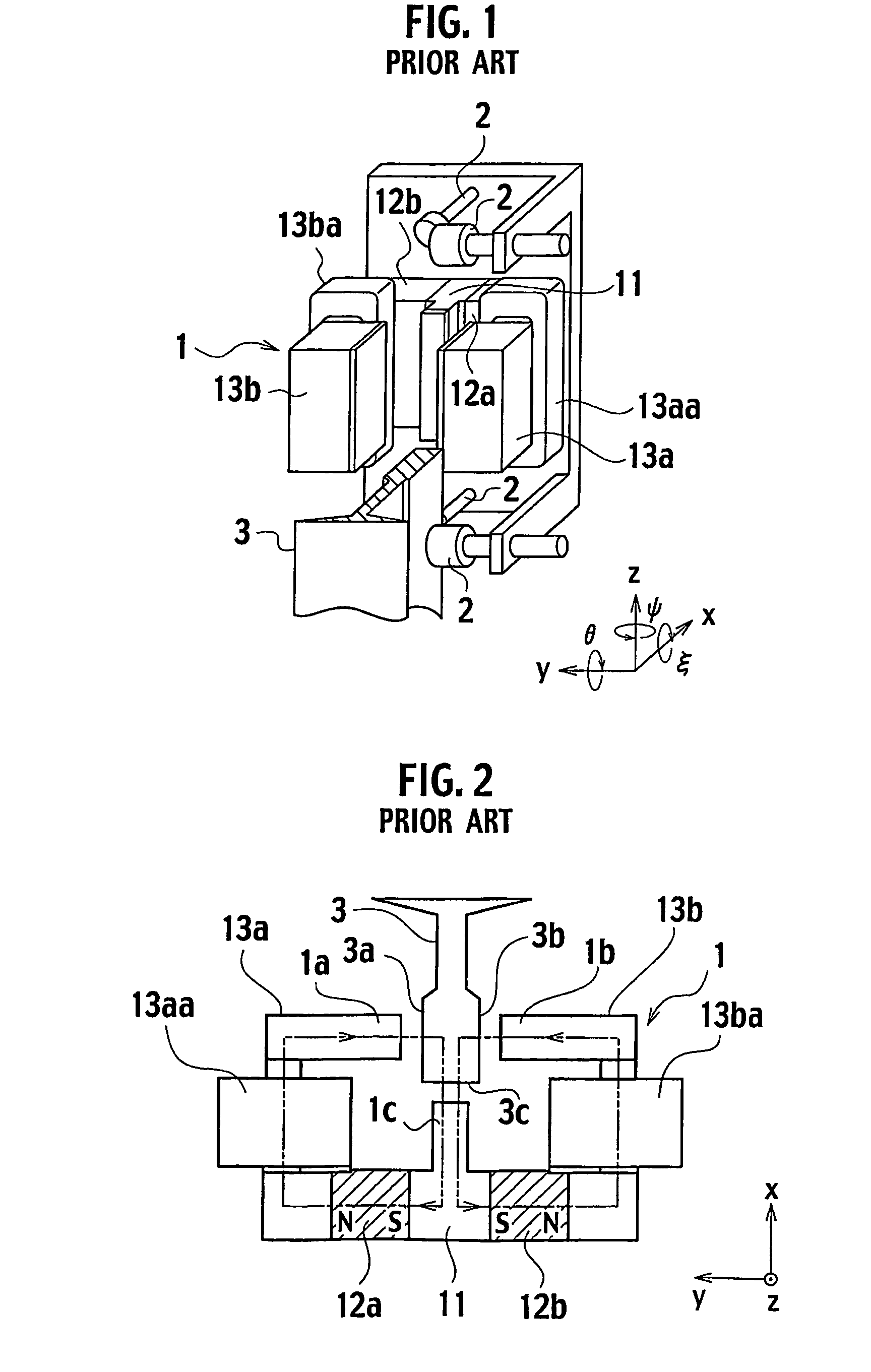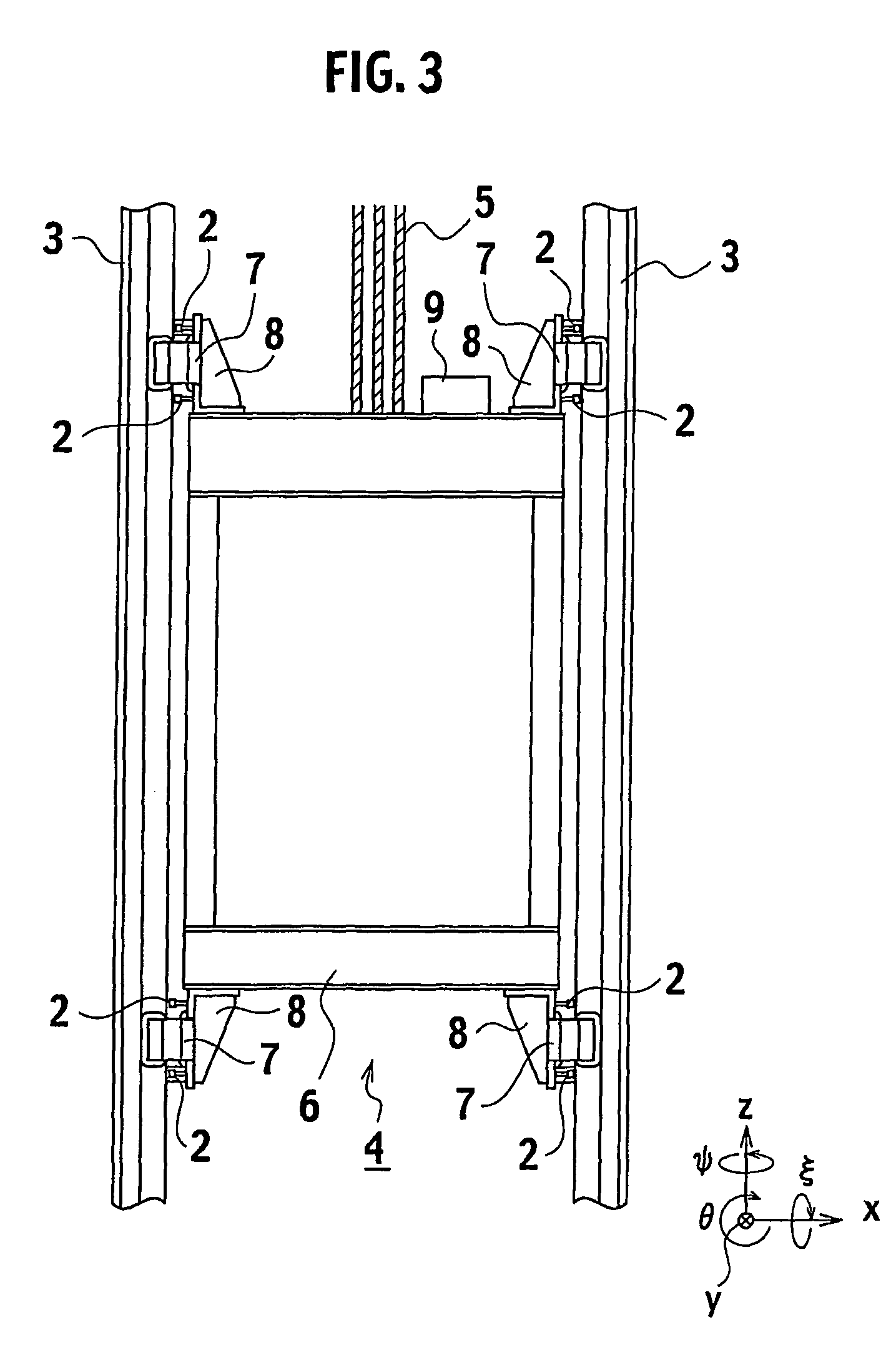Magnet unit, elevator guiding apparatus and weighing apparatus
a technology of guiding apparatus and magnet unit, which is applied in the direction of elevators, magnetic bodies, instruments, etc., can solve the problems of reducing the stability of the elevator car in its equilibrium situation, reducing the stability of the elevator guiding apparatus adopting the above magnet unit or the like, and accompanied by great electric power consumption, so as to reduce the deviation of attraction forces, reduce the capacity of a power source, and enhance the controllability of the respective magnetic pole
- Summary
- Abstract
- Description
- Claims
- Application Information
AI Technical Summary
Benefits of technology
Problems solved by technology
Method used
Image
Examples
first embodiment
[0068]As obvious from above, on condition of adopting the above-mentioned magnet unit 7 of the first embodiment as the elevator guiding apparatus and further installing four units 7 to four (up, down, left and right) corners of the elevator car 6 through the pedestals 8 together with the sensors 2 while opposing the guide rails 3, the control of exciting currents to the respective electromagnets allows, the elevator car 6 to be posture-controlled to a translational direction (i.e. x-y directions) in the horizontal plane and a rotational direction (i.e., ξ, θ, φ directions), whereby non-contact and stable guide control of the elevator car 6 to the guide rails 3 can be accomplished.
[0069]FIG. 7 is a structural view of a circuit of the elevator guiding apparatus provided by adding a controller to the magnet unit 7 of the first embodiment and the sensors 2. Thus, the elevator guiding apparatus includes the electromagnets 71a, 71b, 73a, 73b of the magnet unit 7, the sensors 2 for detecti...
second embodiment
[0076]The second embodiment where the center electromagnet 73 of the magnet unit 7 is formed by the single electromagnet will be described with reference to FIG. 8.
[0077]As shown in this figure corresponding to FIG. 8 of the first embodiment, an electromagnet 73c is arranged at a projecting part of the third pole 7c of the center electromagnet 73 to form a magnetic circuit (magnetic path) in common with the permanent magnets 72a, 72b.
[0078]Similar to the first embodiment, a magnetic path between the permanent magnet 72a and its pole is substantially equal to that between the permanent magnet 72b and its pole. Thus, while a difference in the attraction force between the directions becomes small, by controlling the exciting currents to the respective electromagnets 71a, 72b, 73c based on the sensors 2 in the adoption of the elevator guiding apparatus, it is possible to control attraction forces in both directions x and y individually, allowing the elevator car 6 to be controlled betw...
PUM
| Property | Measurement | Unit |
|---|---|---|
| polarity | aaaaa | aaaaa |
| magnetic | aaaaa | aaaaa |
| magnetic poles | aaaaa | aaaaa |
Abstract
Description
Claims
Application Information
 Login to View More
Login to View More - R&D
- Intellectual Property
- Life Sciences
- Materials
- Tech Scout
- Unparalleled Data Quality
- Higher Quality Content
- 60% Fewer Hallucinations
Browse by: Latest US Patents, China's latest patents, Technical Efficacy Thesaurus, Application Domain, Technology Topic, Popular Technical Reports.
© 2025 PatSnap. All rights reserved.Legal|Privacy policy|Modern Slavery Act Transparency Statement|Sitemap|About US| Contact US: help@patsnap.com



